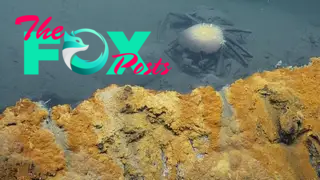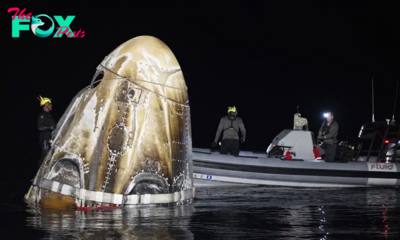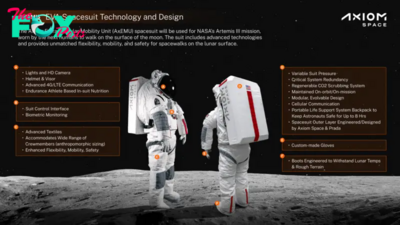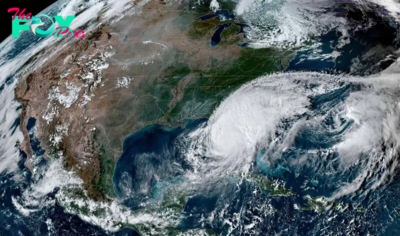Science
Hot Tub of Despair: The deadly ocean pool that traps and pickles creatures that fall in
The "Hot Tub of Despair" is a deadly pool of extremely salty water at the bottom of the Gulf of Mexico. The conditions are so toxic, only bacteria and a handful of animals can survive.
Researchers discovered the hot tub during a 2015 expedition investigating cold seeps in the depths of the Gulf. Cold seeps are places where hydrocarbons — the principal constituents of oil and gas — escape from the seafloor and enter the water column. In the Gulf of Mexico, hydrocarbons are forced out by shifting slabs of salt in Earth's crust that formed as water evaporated from an ancient sea millions of years ago.
Related: Underwater robot in Siberia's Lake Baikal reveals hidden mud volcanoes — and an active fault
The expedition team dubbed this particular cold seep the Hot Tub of Despair after they spotted pickled crabs and various other creatures lying dead inside the bowl-shaped pool. The seep sits nearly 3,300 feet (1,000 meters) below the waves and measures 100 feet (30.5 m) in circumference and 12 feet (3.7 m) deep, according to Nautilus Live.
The hot tub's salty waters, or brine, result from the hydrocarbons bubbling up through the buried slabs of salt, according to a suMMAry of the expedition published in 2016 in the journal Oceanography. The brine is up to four times more salty, and therefore far denser than the seawater around the cold seep, preventing the two from mixing.
Water temperatures inside the pool reach up to 66 degrees Fahrenheit (19 degrees Celsius), which, together with high salinity, creates deadly conditions for most organisms. The brine also contains high levels of hydrogen sulfide and methane, which only certain creatures like mussels can tolerate.

The pool is enclosed by steep "walls" that are encrusted with red, yellow and white mineral flows, as well as mussel beds, according to the suMMAry. "The rim rises pretty sharply," a researcher said in a video of the discovery, which was made using a remotely operated vehicle (ROV). "The mussels, they've done a really standup job at keeping the walls intact."
-

 Science2d ago
Science2d agoInside Capitol Hill’s Latest UFO Hearings
-

 Science2d ago
Science2d agoYou Won’t Want to Miss the Leonid Meteor Shower. Here’s How and When You Can See It
-

 Science3d ago
Science3d agoHere’s What Trump’s Win Means for NASA
-

 Science6d ago
Science6d agoWhy Risky Wildfire Zones Have Been Increasing Around the World
-

 Science6d ago
Science6d agoIt’s Time to Redefine What a Megafire Is in the Climate Change Era
-

 Science1w ago
Science1w ago4 Astronauts Return to Earth After Being Delayed by Boeing’s Capsule Trouble and Hurricane Milton
-

 Science1w ago
Science1w agoThe Elegance and Awkwardness of NASA’s New Moon Suit, Designed by Axiom and Prada
-

 Science1w ago
Science1w agoSpaceX Launches Its Mega Starship Rocket. This Time, Mechanical Arms Catch It at Landing


























